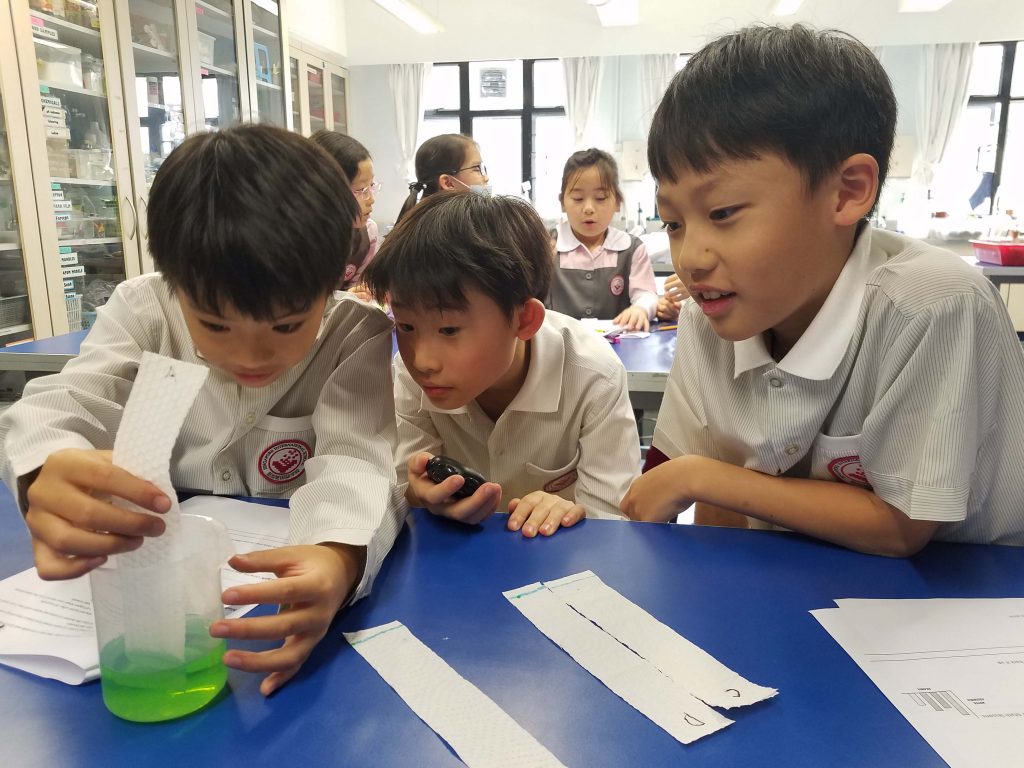
How Open-Ended Questions Build English Proficiency in Students
English proficiency is more than just learning grammar rules or memorising vocabulary. It is about thinking critically, expressing ideas clearly and engaging in meaningful conversations.

Primary Science education in Singapore has long been centred around rote memorisation, where students absorb facts and formulas to pass exams. While this method ensures short-term recall, it does little to develop deeper analytical skills. However, as Singapore continues to emphasise 21st-century competencies, educators and parents are recognising the need to cultivate critical thinking in young learners.
Critical thinking in Science goes beyond simply knowing the right answers. It involves questioning, reasoning, and applying knowledge to solve real-world problems. When children develop this skill, they become more engaged, curious, and innovative thinkers—qualities that are essential for success in the modern world.
In this blog, we explore the importance of reasoning in primary Science, effective teaching strategies, and how parents and educators can support this shift. By moving away from rote learning, we can help children develop a strong foundation in scientific inquiry and problem-solving. Let’s explore how Stepping Stones Learning Centre can foster critical thinking and enhance your child’s skills in primary Science.
Critical thinking in Science is the ability to analyse information, evaluate evidence, and draw logical conclusions. Instead of simply memorising facts, students engage in reasoning, questioning, and applying concepts to new situations.
This involves:
While memorisation has its place in education, an over-reliance on rote learning can lead to:
Shifting from rote learning to reasoning in Science education offers several key benefits:
By fostering critical thinking in primary Science, we equip students with lifelong skills that go beyond exams and into their everyday lives. At Stepping Stones, our Primary Science Tuition Program is designed to help your child develop these vital skills for success in Science and beyond.

To nurture a culture of reasoning in primary Science, parents and educators must adopt effective teaching strategies that go beyond textbook learning.
Children are naturally curious, and fostering this curiosity can enhance their critical thinking skills. Encourage them to:
Experiments make Science fun, interactive, and meaningful. Some simple ways to incorporate hands-on learning include:
When children connect Science with real-life experiences, they develop a deeper appreciation for the subject.
Engaging students in discussions allows them to verbalise their thoughts and hear different perspectives. Some effective strategies include:
These activities stimulate logical reasoning and help students become confident communicators.

Inquiry-based learning (IBL) is a student-centred approach that encourages exploration and discovery. Instead of memorising facts, students investigate, analyse, and draw conclusions based on evidence.
To implement this effectively, teachers must transition from instructors to facilitators, guiding students in their exploration rather than simply providing answers.
Many parents worry that moving away from rote learning will affect their child’s PSLE performance. However, the Primary Science curriculum in Singapore now includes more application-based and reasoning questions, making critical thinking more relevant than ever.
Teachers need to adapt their teaching styles to incorporate reasoning-based methods. Schools and tuition centres like Stepping Stones Learning Centre help students bridge the gap between conceptual understanding and exam performance.
Assessment methods should evolve to include:
This ensures that students are evaluated based on understanding rather than memorisation.
At Stepping Stones Learning Centre, we offer Primary Science Tuition that emphasises:
By using the right resources and support systems, children can develop strong reasoning skills that benefit them throughout their education.
At Stepping Stones Learning Centre, we believe in moving beyond rote memorisation to develop reasoning skills in primary Science education. By fostering inquiry, hands-on learning, and critical thinking, we help children become curious scientists and problem solvers, equipped to apply their knowledge in real-world situations.
This shift prepares students for Singapore’s evolving education system, which increasingly focuses on application-based learning. However, it requires a collaborative effort. Teachers, parents, and tuition centres must work together to encourage exploration and reinforce reasoning-based concepts. Our programmes provide the structure and support needed to make this transition successful.
Our goal is to nurture more than just academic success— we aim to inspire curiosity, resilience, and a passion for discovery. By offering expert guidance in primary Science, we help students develop the critical thinking skills that will serve them well in both school and life. Visit our contact page to learn more about how we can help your child thrive.
Critical thinking helps students move beyond rote memorisation to develop a deeper understanding of scientific concepts. It enables them to analyse information, ask meaningful questions, and apply their knowledge to real-world problems. These skills prepare students for academic success and encourage lifelong curiosity.
Parents can nurture critical thinking by encouraging children to ask “why” and “how” questions about everyday occurrences. Conducting simple Science experiments, discussing real-world scientific events, and prompting children to predict outcomes before testing ideas can help develop their reasoning skills. Making Science a natural part of daily conversations fosters curiosity and problem-solving abilities.
Effective teaching methods go beyond memorisation and focus on hands-on learning and inquiry-based approaches. Encouraging students to explore Science through experiments, open discussions, and real-world applications helps them retain information more effectively. Concept-based teaching connects Science to everyday life, making learning more meaningful and engaging.
Inquiry-based learning allows students to actively explore and discover Science through questioning, experimenting, and reasoning. Rather than passively absorbing information, they engage in hands-on investigations that make learning interactive and effective. This method aligns with Singapore’s curriculum, fostering curiosity, problem-solving, and a deeper understanding of scientific principles.
Stepping Stones Learning Centre offers tuition programmes designed to develop critical thinking and conceptual understanding in primary Science. Our experienced educators use hands-on activities and inquiry-based learning to help students grasp scientific concepts effectively.
Want to help your child develop strong critical thinking skills in Science? Contact us today to learn more about our programmes!

English proficiency is more than just learning grammar rules or memorising vocabulary. It is about thinking critically, expressing ideas clearly and engaging in meaningful conversations.

Mathematics education has long been associated with memorisation of formulas and repetitive drilling. While rote learning may offer short-term results, it often leaves students unequipped
